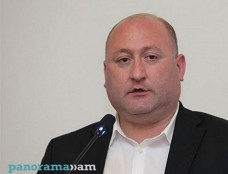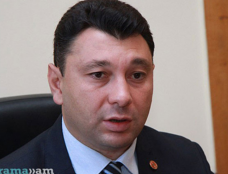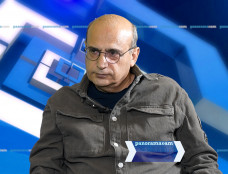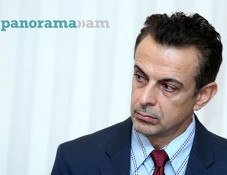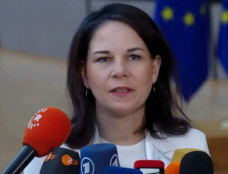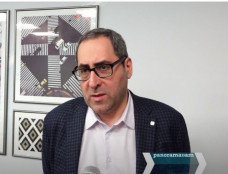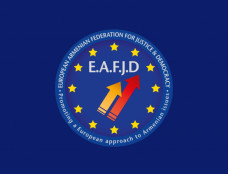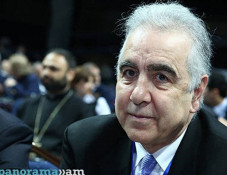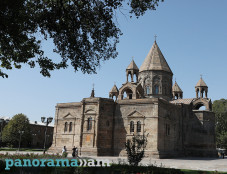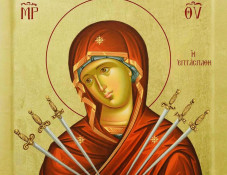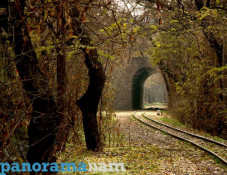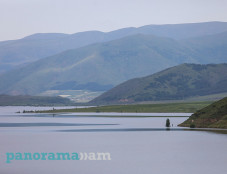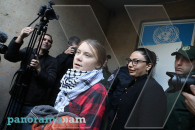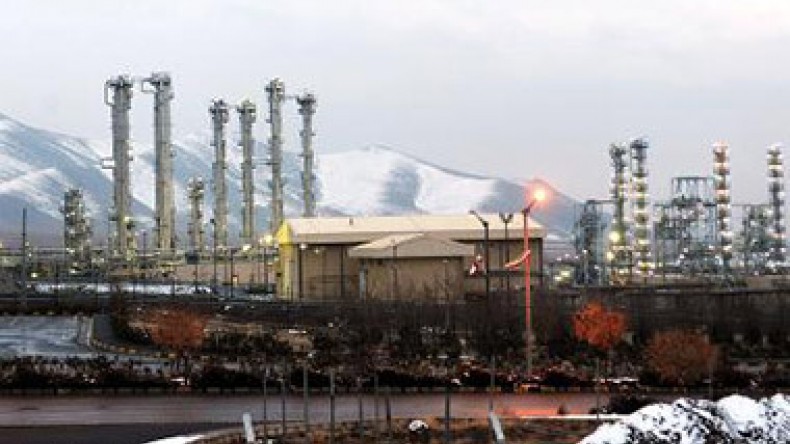
Nuclear talks in political vacuum would be mistake
Below is Iranian Diplomacy’s interview with Robert A. Manning, a resident senior fellow with the Brent Scowcroft Center on International Security at the Atlantic Council.
- Iran and the P5+1 implemented an interim deal on January 20 and negotiations are on the way. Now what? How can both sides, especially Iran and the US, sign a final deal? Might the US consider giving Iran more privileges and Iran giving the West more concessions?
- It will be a difficult process that will have ups and downs. The danger I see now is that in their public statements, both the US and Iran are taking hardline positions that will be difficult to walk back into compromise. Both sides have compelling interests in a deal. For Iran, sanctions have crippled its economy and made daily life miserable for tens of millions of Iranians. Iran is unable to do business globally and cannot obtain much needed foreign investment to upgrade and modernize its oil and gas infrastructure. There is room for compromise if both sides can ultimately settle for what is minimally acceptable rather than hold out for maximalist positions.
- How about conservatives on both sides, and those who compare the Geneva deal with the Munich agreement?
- Beware of those bearing historical analogies. Munich is an overused and often misapplied cliché. Some in Iran oppose any deal with the US, some in the US would not accept any Iranian fuel cycle activity, though the NPT has no such restriction. The point of diplomacy is to find a balance of interests that both sides can live with. What is the alternative? Military strikes would only postpone Iran’s nuclear efforts, and strengthen the rationale of those in Iran who see nuclear weapons as an insurance policy. Iran’s problems would only grow if there is no deal and the US Congress imposes more sanctions.
- You are among the Americans who favor diplomacy. Do you think additional sanctions could kill diplomacy and leave Obama with the war option? What would happen in Iran and especially for Rouhani if more sanctions are approved?
- There is great skepticism of Iran’s intentions in the US Congress and strong support for more sanctions. It has taken some effort from President Obama to persuade them not to go forward with additional sanctions in the midst of diplomatic talks. Additional sanctions would be used by hardliners in Iran to block President Rouhani’s efforts. The net result is that the issue would not be resolved and the suffering of the Iranian people would increase.
- It seems that the Iranian and the US perspectives about a final deal have huge differences, as the US talks about dismantling and Iran insists on progressing in nuclear activities. Are these gaps bridgeable?
- There is a serious gap, but if the political will exists, it is bridgeable. The US is prepared to accept Iranian enrichment to 5%. But if you read the IAEA reports on Iran’s nuclear program, there are serious concerns about past activity in regard to covert efforts to create uranium hexafluoride, explosive tests, and reluctance to allow the IAEA access to Parchin. While these concerns are about past, not current activities, they raise questions about peaceful nuclear intentions. A key issue will be transparency. This past behavior justifies extra requirements for transparency – for starters, implementing the AIAEA Additional Protocol which Iran has signed.
There is room for compromise. For example on Arak, instead of dismantling as the US demands, it could be converted into a light water facility. It would also help Iran’s case if in areas outside the nuclear realm, Iran began to be less truculent. Tehran is over-reaching spending the nation’s wealth meddling in Lebanon, Iraq and Syria while 15 million Iranians live on welfare food packages and few can buy meat more than once a month. I understand Iranian national pride, but if Iran wants to achieve the economic goals that President Rouhani seeks Iran will need to curb its nuclear ambitions. I think if Iran had a nuclear situation more like that of Japan that is something that could be accommodated if there was adequate transparency. If Iran has only peaceful intentions for nuclear power and has nothing to hide, then it should be able to provide such transparency.
- As a former US State Department advisor, do you think it is correct to compare Barack Obama to Neville Chamberlain and Hassan Rouhani to Gorbachev?
- In regard to Obama, that is a quite unfair characterization. He is the man that took out Osama bin Laden and has aggressively pursued terrorists. He does reflect a mood in the US, an overwhelming US majority view that after 13 years of wars in Iraq and Afghanistan that were at best inconclusive and at worst, costly unsuccessful adventures, and an overly-militarized US foreign policy, it is time for new approaches. I think Obama understands that just because you have a hammer does not mean that every problem is a nail. That is very different from Chamberlain – not to mention that the analogy begs the question: who is Hitler?
In regard to Rouhani, the comparison to Gorbachev may prove to be not entirely wrong. I suspect President Rouhani would prefer to see himself more like Deng Xiao-peng. But he appears to genuinely be someone who I think might be called a conservative reformer. Remember it was conservative Richard Nixon who went to China. Rouhani seems very aware of Iran’s internal shortcomings and seems to want to fix the economy and reduce social injustice. In that sense there are some similarities to Gorbachev, who tried to modernize and fix a dysfunctional USSR.
- Some reports claim that secret US-Iran talks laid the groundwork for the nuclear deal. Would these back channel contacts help the upcoming negotiations toward a final deal? Some of the US’ Arab allies in the region are not happy with these private contacts but many believe the nuclear issue can only be resolved when the US and Iran put aside their hostility.
- The Saudis and GCC states and Israel are indeed, uncomfortable with the US and Iran talking. But I think the nuclear issue and rapprochement between the US and Iran need to proceed on parallel tracks. It is a question of what are Iranian priorities and strategic goals. Iran’s long-term interests would be better served if Iran shifted its approach the region to cooperate in areas where US and Iranian interests overlap. For example, as the US exits Afghanistan, both have an interest in stability and limited Taliban extremists. In areas such as counter-narcotics and counter-terrorism also there should be possibilities of cooperation. Iran has little interests in Sunni jihadi extremists.
Such cooperation could gradually, on a case-by-case basis increase trust and demonstrate that President Rouhani is serious about changing the relationship. Don’t forget that for four decades prior to 1979 Iran was an important partner of the US in the region. In a troubled region, one with fragile Arab states created out of the Ottoman Empire, Persia is a great historic civilization that is certain to endure. Iran could be a constructive force for stability in the region rather than being obstreperous and imperious, trying to extend Persian/ Shia influence into the Mediterranean. Tehran would have a more successful and durable foreign policy if it reformed its economy, integrated itself into the global economy as many East Asian nations have and become more less of a disruptive actor.
I suspect if Iran moved in that direction then we would see the Sunni-Shia, Saudi-Iran antagonism also diminish. Remember prior to the US invasion of Iraq, such tensions were minimal.
- Decreasing tension or reconciliation; which of these is the most possible scenario in the short term for Tehran and Washington? Do you think the current situation regarding Iran is the same as that of the US and China in the 1970s?
- If there is not a path toward reconciliation, President Rouhani will not achieve his economic goals, will not get much needed foreign investment to modernize the oil and gas sector, will not restore its place in global financial markets, and will fall further behind the globalized economy. Failure to resolve the nuclear issue will increase tension and confrontation in the region. Everyone will lose if that occurs. But there is so much lingering distrust on both sides that it could happen.
The situation is not the same as when the US an China restored relations in the early 1970s. The US and China faced a common threat from the USSR. That is what pushed both sides together. If Rouhani is indeed a conservative reformer who wants to open up Iran’s economy, and move in a market-oriented direction as Deng did in 1979, that would create a deeper layer of overlapping interests and have some similarity to the US-China opening.
- In general, how far can any US-Iran rapprochement go?
- I don’t think a “Grand Bargain” is possible now. There is too much political baggage on both sides. But I think geopolitical circumstances allow for a step-by-step gradual and transactional process that builds cooperation modestly in areas where interests overlap. As I suggested I think Afghanistan, counter-narcotics and counter-terrorism are issues that could begin to build cooperation. Resolving the nuclear issue could also open the door to US and EU private sector investment in Iran as well.
- Will progress in nuclear talks mean more engagement from Iran?
- Not necessarily. But I think it would be a mistake if the nuclear talks occurred in a political vacuum, like the Syria chemical weapons agreement, and everything else remained the same. I think both sides should quietly and cautiously engage on other issues as I have suggested. Perhaps this occurred in the back-channel talks that took place over more than year.
- Do you think the Iran nuclear deal and Rouhani and Zarif’s new approach toward Iran’s Arab neighbors could be the start of a new era in the region?
- It could catalyze a trend away from the Sunni-Shia cold war. There has been a more cooperative pattern of relations between Iran and its Arab neighbors in the past. The current tensions are a product of particular geopolitical circumstances. A resolution of the nuclear issue – if it was part of a larger shift in the pattern of Iranian behavior – could yield strategic benefits for nations on both sides of the Gulf.
- In your opinion, could the way toward a final deal foreshadow Tehran’s role in the Syrian peace talks?
- A final deal would certainly create a new political atmosphere. It is difficult to see any near-term resolution of the Syria civil war, certainly one that leaves the Syrian state intact. But any eventual settlement has to involve all the outside actors – and this includes Saudi Arabia and Iran accepting the outcome. Iran is the only outside actor that has significant numbers of military forces inside Syria. So when negotiations get serious, I think Iran as well as the GCC states need to play a diplomatic role.
- And could this deal complicate other US policies in the Middle East? What would US-Saudi and US- Israeli relations look like?
- In the immediate aftermath of a final deal, there would be much fear and discomfort in both the GCC states and Israel. But if the terms were realized and Iran was fully cooperative, over time both would benefit from the elimination of a nuclear threat. A US-Iran rapprochement would certainly reshape the geopolitics of the Gulf. But the Shale Revolution in the US and the political fallout from the Iraq and Afghan wars is reshaping US views about its role in the Middle East independent of any Iran deal. I think that the historic US-Saudi understandings on oil flows and security will be different going forward. And in regard to Israel, there will always be great sympathy for Israel in the US, this will be more true if Secretary Kerry’s efforts to produce an Israeli-Palestinian agreement is achieved and a Palestinian state is the result. If not, I think that Americans attitudes toward Israel may change.
Newsfeed
Videos





